Managing a construction project is no small feat. It involves juggling a lot of moving parts. Some duties are better left to a professional project manager. Trying to handle these responsibilities on your own can lead to costly mistakes, delays, and stress. Let’s dive into key project manager tasks that require expertise. Key construction project manager duties you really do not want to do on your own. Find out what is best left for experts to manage here.
1. Planning and Scheduling
One of the first tasks a construction project manager handles is planning and scheduling. This includes creating a detailed project timeline. It also involves coordinating with subcontractors, suppliers, and vendors. Without experience, it’s easy to underestimate the time required for each phase. Delays caused by poor planning can disrupt the entire project. Hiring a skilled project manager ensures that your timeline remains on track.
Accurate scheduling is crucial. Every delay increases costs and risks. A project manager anticipates potential setbacks and builds flexibility into the schedule. They also manage the timeline to align with delivery dates, labor availability, and material supply.
2. Budget Management
Another critical responsibility is managing the budget. Construction costs can quickly spiral out of control without proper oversight. A project manager monitors expenses, negotiates with vendors, and tracks material costs. They also make adjustments when unforeseen expenses arise. Trying to do this alone can lead to overspending, missed payments, or cash flow issues.
A professional manager also prepares financial reports and updates stakeholders on any changes. With their skills, they can help you avoid common budgeting pitfalls. If you’re unfamiliar with construction costs and market rates, it’s easy to underestimate expenses.
3. Managing Subcontractors and Vendors
Subcontractors play a crucial role in any construction project. Managing them can be a time-consuming and complex task. A project manager ensures that all subcontractors are doing their jobs properly and on schedule. They communicate regularly, monitor performance, and resolve any disputes. Without experience in this area, it’s easy to let deadlines slip or mismanage relationships.
Project managers also negotiate contracts with vendors, ensuring that materials are delivered on time and within budget. Their strong industry connections can often result in better deals. Trying to do this without experience can lead to delays and higher costs.
4. Quality Control
Ensuring quality control throughout the construction process is essential. A project manager keeps an eye on each phase to maintain high standards. They inspect work regularly, coordinate with engineers, and ensure compliance with industry regulations. Skipping this step or doing it yourself could result in subpar work, leading to costly repairs later.
An experienced manager anticipates problems and fixes them before they escalate. They ensure that all work meets the design specifications and client expectations. This includes checking that materials meet quality standards and that all safety regulations are followed.
5. Risk Management
Construction projects are full of risks. Unforeseen events such as bad weather, labor strikes, or supply chain disruptions can derail progress. A project manager anticipates these risks and creates contingency plans. They monitor potential issues and respond quickly when problems arise. Handling this on your own might leave you unprepared for unexpected setbacks.
By identifying risks early, the project manager minimizes potential delays. They also keep the project moving forward despite challenges. Trying to handle risk management without experience could lead to costly mistakes or even project failure.
6. Safety Compliance
Safety regulations in construction are stringent and necessary to protect workers. Ensuring compliance with safety laws is another key duty of a project manager. They develop and implement safety plans, conduct inspections, and ensure that all workers follow safety guidelines. Failure to comply can result in serious accidents, fines, or even legal action.
A project manager’s job is to keep everyone on-site safe. They ensure that the site is free of hazards and that all workers are trained in safety protocols. Without this expertise, you risk endangering workers and delaying the project.
7. Communication and Reporting
A successful construction project depends on clear and consistent communication. A project manager serves as the central point of contact for all stakeholders. This includes the client, subcontractors, suppliers, and regulatory agencies. They ensure that everyone stays informed about project progress.
Effective communication is essential for preventing misunderstandings and managing expectations. The project manager also prepares regular reports, summarizing key developments and addressing any concerns. Without proper communication, the project could suffer from delays, cost overruns, or dissatisfaction.
8. Legal and Regulatory Compliance
Navigating the complex web of legal and regulatory requirements in construction can be overwhelming. A project manager is responsible for obtaining necessary permits and ensuring compliance with local regulations. They stay up-to-date on building codes, zoning laws, and environmental regulations.
Failing to comply with these rules can result in fines, work stoppages, or even lawsuits. A professional manager takes care of all the paperwork, saving you time and potential legal headaches. Attempting to manage this on your own without the right knowledge could cause costly delays.
9. Change Management
No construction project goes exactly as planned. Changes in scope, design, or budget are inevitable. A project manager handles these changes smoothly, ensuring minimal disruption to the project. They communicate with all parties involved, update the timeline, and adjust the budget as necessary.
Without a project manager, you may struggle to adapt to changes and keep the project on track. The ability to manage changes efficiently is crucial for maintaining the project’s success.
10. Project Closeout
Even when the construction is complete, the project is not over. The closeout phase involves final inspections, paperwork, and ensuring that everything meets the client’s expectations. A project manager coordinates the handover, ensuring all loose ends are tied up. This includes obtaining warranties, manuals, and any other necessary documentation.
The closeout process is crucial for avoiding any lingering issues. A project manager ensures that the transition from construction to occupancy is smooth. Trying to handle this alone can result in incomplete tasks or dissatisfied clients. Those were the key construction project manager duties you really do not want to do on your own.
Conclusion
Construction project management is not a job you want to tackle alone. The complexity, time commitment, and risks involved make it essential to hire a skilled professional. From planning and scheduling to managing subcontractors and ensuring safety compliance, a project manager brings expertise that keeps your project on track. Attempting to do these tasks on your own can lead to costly mistakes, delays, and frustration.
In the end, investing in a construction project manager saves you time, money, and stress. With their expertise, your project runs smoothly, meets deadlines, and stays within budget. Don’t risk your investment by trying to manage it all on your own. Key construction project manager duties you really do not want to do on your own. Find out what is best left for experts to manage here.


